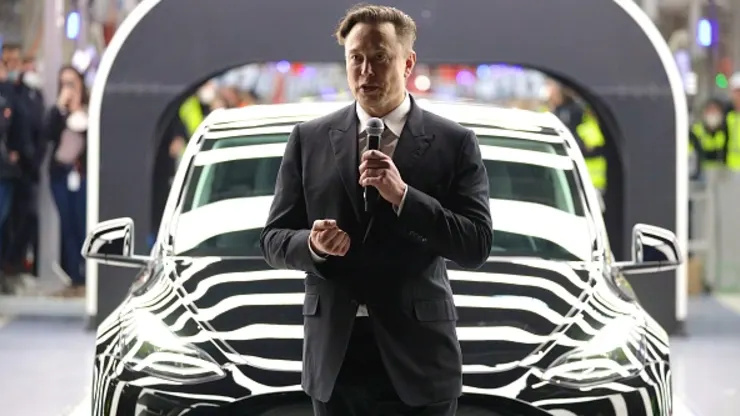Elon Musk is confident about the future profitability of Tesla's driverless software, so much so that he's willing to bet the company's profit margins on it. However, investors are skeptical due to Musk's past unfulfilled predictions regarding the timeline of fully autonomous Teslas.
During a conference call last week, Musk claimed that Tesla has the ability to sell cars at "zero profit" initially, with the aim of making significant profits later through driverless software. He stated that Tesla is the only company that can currently afford to do so and that the potential benefits of autonomy are significant.
Musk's statement highlights his belief in the eventual success of Tesla's autonomous technology, but investors remain wary due to previous setbacks. Despite this, Musk remains confident in the future of the technology and its potential profitability for the company.
Despite struggling to turn his vision of driverless cars into reality, Elon Musk is continuing with price markdowns that could potentially trigger a price war. Recently, Tesla has reduced the cost of their top-selling Model Y by 29% in just a few months, causing concern among investors about declining profits.

The idea of self-driving cars has been a long-standing dream in the automotive industry, and Musk has been a vocal advocate for the technology. However, Tesla has yet to fulfill its promises of having fully autonomous vehicles on the roads, let alone robotaxis dominating them.
Although Tesla offers a system called Full Self-Driving, the technology merely assists human drivers who are ultimately responsible for operating the vehicle. Drivers are required to keep their hands on the wheel and their eyes on the road, despite the system's name suggesting otherwise.
Tesla charges customers $15,000 for its optional Full Self-Driving (FSD) system, but the company defers some of the revenue because the product is not yet a finished and reliable system. Elon Musk has claimed that the feature may live up to its billing and be complete by the end of this year.
However, Cowen & Co. analyst Jeffrey Osborne remains skeptical about Musk's claims. In his note recapping Musk's comments, Osborne questions Musk's assumptions, including the FSD being complete by year-end, demand outstripping supply, and vehicles being an appreciating asset over time.
Tesla has started recognizing some of its deferred revenue, including a record-high $324 million in the fourth quarter of last year. Despite this, the company has been recognizing less deferred revenue than it has forecasted in regulatory filings. With a projection of $639 million for 2023, the company's forecast is the lowest it has been in almost four years.
.jpg)
Tesla did not disclose how much deferred revenue it recognized in the first quarter in either its earnings release or investor call last week. The exact figure will be available in the company's upcoming 10-Q filing.
Morningstar Research analyst Seth Goldstein viewed Musk's zero-profit statement as more theoretical, but he acknowledged that the strategic goal of making money by selling software services to existing customers is a sensible one. Goldstein explained that Tesla aims to increase the number of Tesla car users to expand the pool of potential software customers, which can eventually become a profitable and high-margin business.
Tesla's CFO Zachary Kirkhorn emphasized the importance of reinvestment funded by cash generated from product sales, indicating that the company has not abandoned the idea of making money from selling cars. However, the company's cash flow hit a two-year low in the first quarter.
As other automakers increase the production of their own electric vehicles, they are closely monitoring the actions of the EV market leader. It remains unclear how much Tesla is willing to reduce prices and margins, making it a wildcard in the industry.
If you're interested in simple strategies for working smarter and living better, subscribe to Well Adjusted, our newsletter from the Fortune Well team. Sign up today.

.webp)
0 Comments